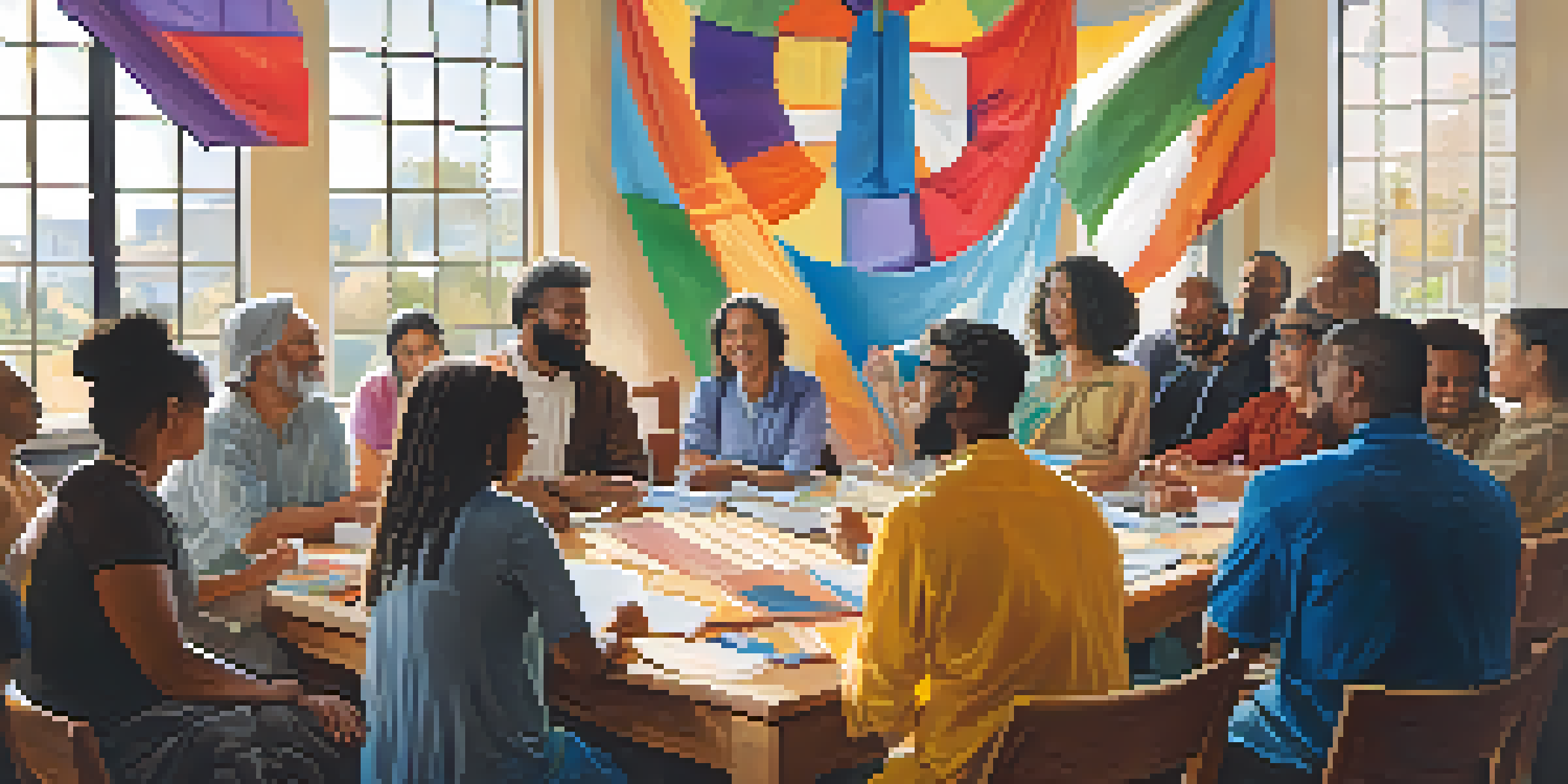Activism in Faith Communities: A Path to Social Change

Understanding Activism in Faith Communities
Activism within faith communities refers to the collective effort to promote social justice and positive change, driven by shared beliefs and values. These communities often view their faith as a call to action, engaging in initiatives that address societal issues like poverty, inequality, and environmental degradation. By coming together, they harness their collective power to advocate for change in a way that resonates deeply with their spiritual convictions.
The Historical Role of Faith in Social Movements
Throughout history, faith communities have been at the forefront of numerous social movements. From the Civil Rights Movement in the United States to the anti-apartheid struggle in South Africa, religious leaders and congregations have often championed justice and equality. This rich legacy illustrates how faith can serve as a powerful motivator for social change, inspiring individuals to stand up for their beliefs and fight for a better world.
Faith Drives Social Justice Efforts
Activism within faith communities mobilizes collective efforts to address social issues like poverty and inequality, rooted in shared beliefs.
Modern Issues Addressed by Faith-Based Activism
Today, faith communities tackle a variety of pressing issues, including climate change, immigration reform, and racial justice. Many congregations organize campaigns, support local charities, or engage in advocacy at the community and governmental levels. By addressing these modern challenges, faith groups not only uphold their values but also demonstrate their relevance in today's society.
The Power of Community Engagement
One of the key strengths of faith-based activism lies in its ability to mobilize community members. By fostering a sense of belonging and shared purpose, faith communities can effectively encourage participation in social causes. This grassroots approach builds solidarity, allowing individuals to connect their personal beliefs with collective action, leading to meaningful social change.
Interfaith Collaboration Amplifies Impact
Joining forces with diverse religious groups enhances the effectiveness of activism, fostering understanding and a united front for justice.
Interfaith Collaboration for Greater Impact
Interfaith collaboration is an essential aspect of modern activism within faith communities. By joining forces with different religious groups, activists can amplify their voices and broaden their impact on social issues. This collaborative spirit fosters understanding and respect among diverse faith traditions, reminding us that the fight for justice transcends individual beliefs.
Challenges Faced by Faith-Based Activism
While activism within faith communities is powerful, it is not without its challenges. Internal disagreements, differing priorities, and societal pushback can hinder progress. Additionally, some members may struggle to reconcile their faith with political activism, creating tension within the community. Addressing these challenges requires open dialogue and a commitment to shared values.
Technology Boosts Activism Reach
Digital platforms empower faith communities to share messages and mobilize supporters, making activism more accessible than ever.
The Role of Technology in Activism
In today's digital age, technology plays a crucial role in faith-based activism. Social media platforms allow communities to share their messages, mobilize supporters, and reach a wider audience. This technological landscape not only enhances communication but also empowers individuals to engage in activism from anywhere, making it easier than ever to advocate for social change.
Looking Ahead: The Future of Faith-Based Activism
The future of activism in faith communities looks promising as more individuals recognize the importance of social justice. With a growing emphasis on inclusivity and collaboration, we can expect to see an increase in innovative approaches to activism. By continuing to harness their collective power, faith communities can play a pivotal role in shaping a more just and equitable world.